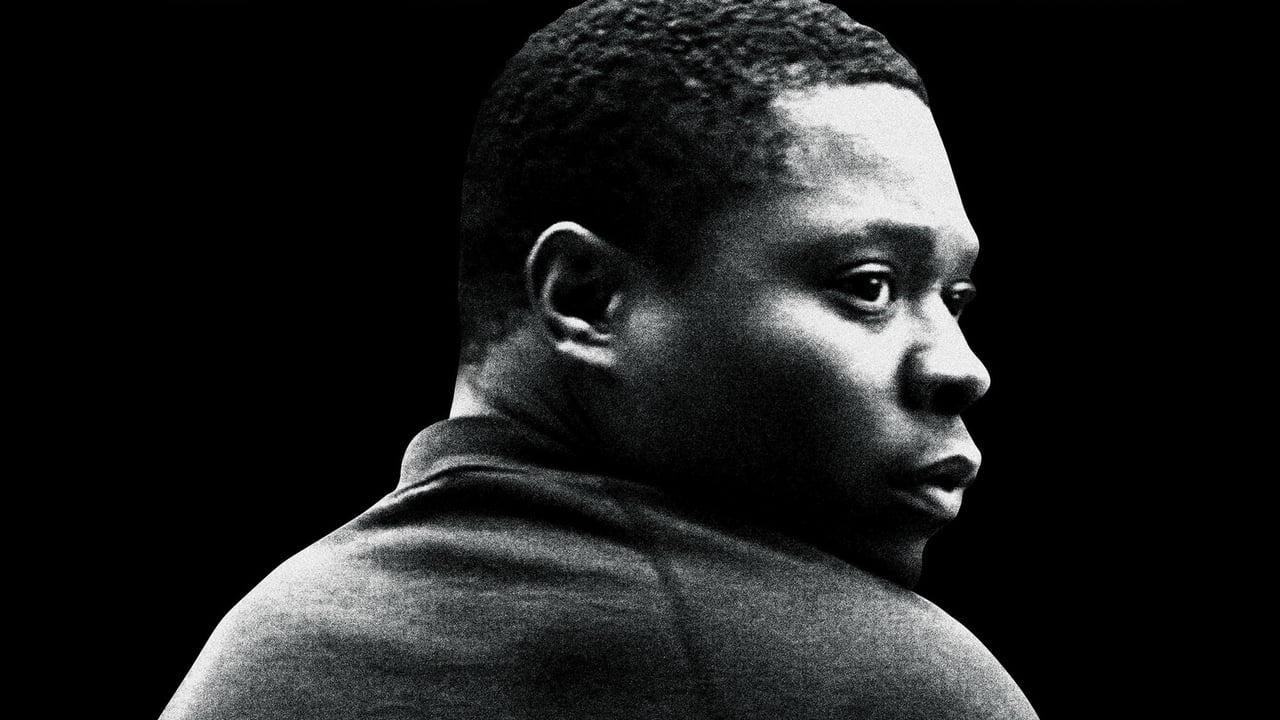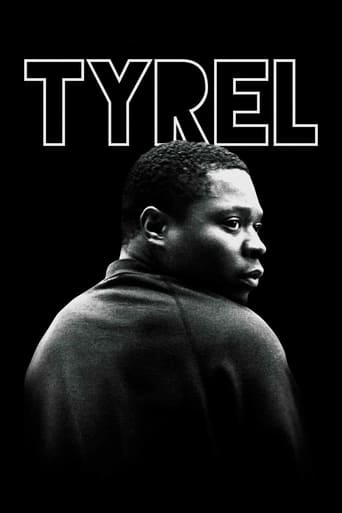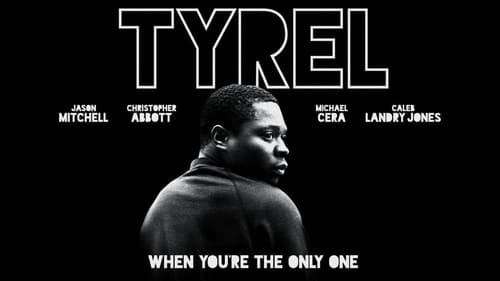



Plot so thin, it passes unnoticed.
Brilliant and touching
Awesome Movie
Easily the biggest piece of Right wing non sense propaganda I ever saw.
View MoreLabeled this year's Get Out, Tyrel faces a high bar to reach. This comparison, no matter how bloated it makes the expectations for this film, is a logical one.A black man named Tyler (Jason Mitchell) attends a birthday party in New York with his friend's old friends, all of whom are white. He's uncomfortable, in part, because he's the one stranger at a party of close friends, a situation familiar to all of us. To add to his unease, the guys hurl microaggressions his way, mishearing his name as Tyrel and later saying to him, "you must really hate Trump."To cope with his discomfort, Tyler spends time with the homeowner's dog, pretends to fall asleep early and constantly stares at his phone. One detail reminiscent of Get Out is the lack of full function of his phone. In that movie, Chris's phone runs out of battery. In this one, Tyler's phone doesn't have call service in the house. In each instance, this reduces our protagonist's contact with the outside world, furthering his discomfort. The parallels to Get Out are plentiful. Certain moments even appear lifted directly from the film. In an eerily similar scene, Caleb Landry Jones, who plays the creepy brother in Get Out and Pete in in this movie, makes awkward comments at dinner and instigates a wrestling match with Tyler. At the very least, such scenes felt unoriginal.Despite the parallels, Tyrel does plenty to distinguish itself. While the Armitages from Get Out were clearly villainous, the people Tyler meets aren't bad guys. They likely aren't even aware of the effect that their comments have on Tyler.Instead of embodying the role of white evil incarnate, they play well-meaning but somewhat ignorant white guys. To drive home this point, the group includes a gay man who is the recipient of a couple awkward comments but is still very much loved and accepted by the others. On the surface, they treat Tyler as a new friend and welcome him to the group. But in practice, amid the raucous reunion and drinking games, it becomes clear the friends in this group spend most of their time with white people, resulting in a lot of uncomfortable interactions. That's what most racism looks like in 2018. Director Sebastian Silva handles the subtleties of these interactions delicately. He clearly understands and depicts racial dynamics as well as the anxiety brought on by feelings of alienation from a group. This story isn't necessarily about race: it could have functioned in much the same way if Tyler were white or if all the friends were black, since he would still experience alienation as a new person in an unfamiliar setting. The racial element adds another layer to the story; an important one.Ultimately, the story's racial and social commentary about today's America (Silva says he made this movie specifically for Americans) make it worth seeing, even if some of the dizzying camera movements and filmmaking techniques comes up a bit short of excellence. Hopefully those potential viewers-those guilty of microaggressions, even unintentional ones- that would benefit most from seeing this film will actually watch it.For all the tension one may experience while watching this film, there is never any real cause for alarm. The characters remain civil to each other. In that sense, it's like Get Out without the payoff of a gripping horror story narrative.Or perhaps there is a payoff, just one a different sort. Tyler ends the weekend with promising new friendships. Maybe the payoff is seeing that we still have hope.
View More